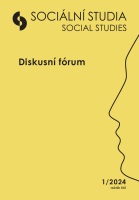
KONOPÁSEK, Z. (2024): Věda a politika, vpravo, vlevo. Sociální studia, 21 (1): 33-38. Dostupné na adrese: https://doi.org/10.5817/SOC2023-33647
::::Pavel Barša svůj text "Pragmatická sociologie emancipace: Latour vs. Boltanski" pointuje úvahami o tom, že Latourovi není blízká ani revoluční levice, ani krajní konzervatismus. Pomáhá si přitom zejména tím, že ho brání před tím, co jsem nedávno napsal o jedné Latourově knize. Podle Barši v tomto textu Latourovi vyčítám jeho politické angažmá. Kritizuji ho za příklon k levici a odkazuji ho do sféry čisté, akademické vědy. Avšak přestřelil jsem prý… Problém je v tom, že mi Barša vkládá do úst, co jsem nikdy neřekl. Latourovi jsem nikdy nevyčítal politický rozměr jeho textů. Už vůbec jsem mu nevyčítal levicovost. A rozhodně mi nejde o to ho „skolit“. Ještě bizarnější ale je, že ten, kdo mi falešně podsouvá kritiku Latoura kvůli tomu, že se ukázal jako „levičák“, mne otevřeně kritizuje kvůli tomu, že jsem se ukázal jako „pravičák“ (je to totiž právě tahle škatulka, která dle Barši vysvětluje moje omyly a mou údajnou nenávist vůči Latourovi). V textu se snažím obhájit, že cit pro jemnost a ambivalence není nic výlučně akademického a že „relativistické“ uvažování je ještě něco jiného než jen výhodné palivo pro konzervativní agendu (jak naznačuje Barša).
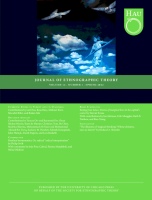
KONOPÁSEK, Z. (2022): Religion in action: How Marian apparitions may become true. HAU: Journal of Ethnographic Theory, 12 (1): 170–183
::::According to Latour, religion and science have nothing in common. The two are successful (or failing) in quite different ways. Religiousness is not aimed at fact-making, but at presence-making, he says. To critically reconsider these ideas, I discuss the case study of Marian apparitions in Litmanová. The study suggests a more complicated picture by not focusing on pure and ready-made religion, but rather on religion in the making, a kind of “almost-religion.” It shows how the reality of apparitions, initially of quite unclear status, was becoming more and more religious. Fact-making and fact-checking clearly belonged to this trajectory and have never stopped being relevant. Nonethless, together with how the apparition was progressively becoming truly religious (or religiously true), Latourian presence-making was gaining in importance.

KONOPÁSEK, Z. / SONERYD, L. / SVAČINA, K. (2018): Lost in translation: Czech dialogues by Swedish design. Science & Technology Studies, 31 (3): 5-23
::::This study explores the journey of a model for stakeholder involvement called RISCOM. Originally developed within the field of radioactive waste management in Sweden, it was later used in the Czech Republic to re-establish public dialogue in the process of siting a geological repository. This case offers an opportunity to empirically study the fragility and ambiguous results of organized spread of public involvement across various domains of technological innovation and national contexts. We show how three circumstances – (1) the ambition to make RISCOM an internationally used model for public dialogue, (2) the specific situation in the Czech siting process, and (3) the short-lived and limited success of the subsequent Czech dialogues by Swedish design – were intrinsically related and sustained each other. Better understanding of such complexities might contribute to a more realistic attitude toward technologized democracy, i.e., toward practices of public deliberation increasingly becoming instrumental, transferable, and depoliticized.
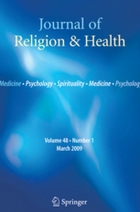
KONOPÁSEK, Z. / PALEČEK, J. (2012): Apparitions and possessions as boundary objects: An exploration into some tensions between mental health care and pastoral care. Journal of Religion and Health, 51 (3): 970-985
::::Apparitions and possessions can be taken as genuine spiritual events or as symptoms of psychopathology. We focus upon occasions when the two seemingly conflicting “interpretations” co-exist in order to explore these phenomena as a kind of boundary objects – polymorphous realities stable and graspable enough, yet belonging to different worlds at once. Related diagnostic knowledge is often uncertain and always incomplete. Yet it enables authoritative and effective professional interventions. We conclude by discussing the relevance of such a view for contemporary efforts to validate patients’ spiritual experiences within mental health care.
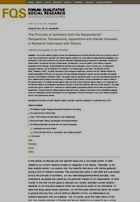
KONOPÁSEK, Z. / PALEČEK (2011): The principle of symmetry from the respondents’ perspective: Possessions, apparitions and mental illnesses in research interviews with clerics. Forum Qualitative Sozialforschung / Forum: Qualitative Social Research, 12 (1): čl. 12, http://nbn-resolving.de/urn:nbn:de:0114-fqs1101129
::::We study how experiences such as hearing the voice of the Lord or having a vision of Virgin Mary are dealt with in psychiatry and catholic pastoral practice. How the status of these phenomena is negotiated by the participants? Under what conditions they become an instance of legitimate religious experience or, alternatively, symptoms of mental illness? We approach the study of these issues “symmetrically” - we do not prefer a priori medical or spiritual explanations. Some time ago, we demonstrated and explained such an approach (which is common, e.g., in contemporary sociology of science), and its relevance for our research, in an analytic paper on the movie “The exorcism of Emily Rose” (2005). The paper discusses a highly ambiguous relationship, pictured in the film, between medical and spiritual interpretation of the story of a young girl who was considered possessed by demons and who died after unsuccessful exorcism (Konopásek & Paleček 2006). Now, the question is: can such a symmetrical approach be of any relevance also for people we are studying? In an attempt to give an answer, we have interviewed four catholic priests on this issue. The priests had been asked to watch the movie on Emily Rose and read our paper on it in preparation for the interview. Based on these discussions (and also on our current research in general), we would like to shed some light on whether and in what ways our specific epistemic perspective coheres with the views and positions of our respondents; and also, how this reflexive research experiment contributed to our own understanding of the role of the symmetry principle in our current research project.
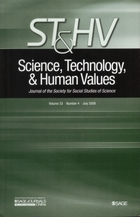
KONOPÁSEK, Z. / STÖCKELOVÁ, T. / ZAMYKALOVÁ, L. (2008): Making pure science and pure politics: On the expertise of bypass and the bypass of expertise. Science, Technology & Human Values, 33 (4): 529-553
::::This paper is based on a case study of a long-term public controversy over the construction of a highway bypass (around Plzen, Czech Republic). Two principal variants of the bypass were proposed. One of them began gradually to appear preferable, increasingly attractive for experts, but remaining only on paper. In the meantime, however, the other variant became more realistic, pushed through mainly by local politicians and actually constructed. We show how purification of science from politics (and vice versa) played a key role in the development and ending of the case. Initial expertisation of the case switched to its sharp politicization, when people got frustrated from protraction and indecisive evidence of accumulated expertise. This turned to be fatal for those who consistently staked everything on "pure facts". We conclude by outlining some general consequences of such a development for both democratic decision making and the political relevance of expertise.
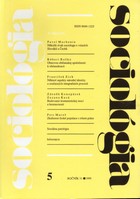
KONOPÁSEK, Z. / KUSÁ, Z. (1999): Budovanie komunistickej moci a bezmocnosti. Sociológia, 31 (5): 459-480
::::This paper turns attention to the period of state socialism. Its aim is to suggest and illustrate a theoretical and analytical framework for making the communists" power problematic from sociological point of view. We would like to promote such a perspective in which the power of communists is not taken - explicitly or implicitly - as something that explains the logic of life under the communist regime; rather, on the contrary, we present it as something that needs to be explained. As such, our approach is inspired by contemporary sociology of science, above all by authors such as Bruno Latour and John Law whose effort is in many respects similar to ours. After a theoretical outline of the approach, we perform its modest practical illustration. We use short extracts from two biographical narratives for an analysis of one particular situation in which the communist power played an important role: the political screenings that followed the military invasion into Czechoslovakia at the end of so called Prague Spring. The screenings are interpreted, in this analytical sketch, as "trials of strength" as well as "real transformations" both of the communist regime itself and all its actors. Above all, we focus on the moments when somebody or something was transformed into a fulcrum, an indisputable and stable entity, or, on the other hand, into a questionable, not-quite-real, because negotiable and reversible network of relations. These moments help us to show the heterogeneous and often surprisingly subtle sources of the political power that constituted state socialism and made it durable.
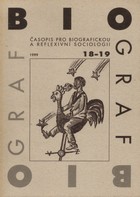
KONOPÁSEK, Z. (1999): Od Černé knihy k černé skříňce: komunismus relativizujícíma očima. Biograf (18-19): 3-24
(18-19): 3-24
::::This paper proposes a sociology of state socialism. It does so by discussing the place of state socialism within the debates on modernity and postmodernity and reassessing the possibilities of so-called biographical research in the field of post-communist studies. The paper also outlines a theoretical and analytical framework for making the communists[a] power problematic from a sociological point of view. Such a perspective suggests that the power of the communists is not taken - explicitly or implicitly - as something that naturally explains the logic of life under the communist regime; on the contrary, it is presented as something that needs to be explained. As such, this approach is inspired by contemporary sociology of science, particularly by the work of Bruno Latour. In doing so, the paper hopes to achieve one important side-effect, namely to (re)establish the phenomena of state socialism as a topic worthy of general sociological attention.
KONOPÁSEK, Z. (1996): Sociologie jako power play. Sociológia, 28 (2): 99-125
::::The presented essay has been inspired by numerous writers who have one thing in common: they distrust of conceptual dualisms and incommen-surabilities that lie behind the modern social science thinking. That is why the dividing lines between knowledge and power, sociology and society, methods and ethnomethods, or truth and falsity are not approached here as part of the solution (as a resource of explanations) but as part of the problem (as things to be explained). It is argued that sociologists construct the authoritativeness of their knowledge in such a way that they arrange a power play, a plain superiority in numbers. They do so deftly and unnoticeably, yet unwittingly, under the guise of ascetic recluses distanced far away from ordinary life. The argument is illustrated by the case of "objective hermeneutic", a qualitative research strategy of German origin, used typically within so called biographical research. I claim that the case of objective hermeneutic (and the case of qualitative methodologies in general) is only particularly obvious and vivid demon-stration of what is much less obvious and visible elsewhere, throughout the field of social science.

 ? - recenze vyjde v časopise Biograf
? - recenze vyjde v časopise Biograf
 se objevily informace o tom, co lze snad prý během března čekat v nové, sedmé verzi mého oblíbeného analytického programu
se objevily informace o tom, co lze snad prý během března čekat v nové, sedmé verzi mého oblíbeného analytického programu







